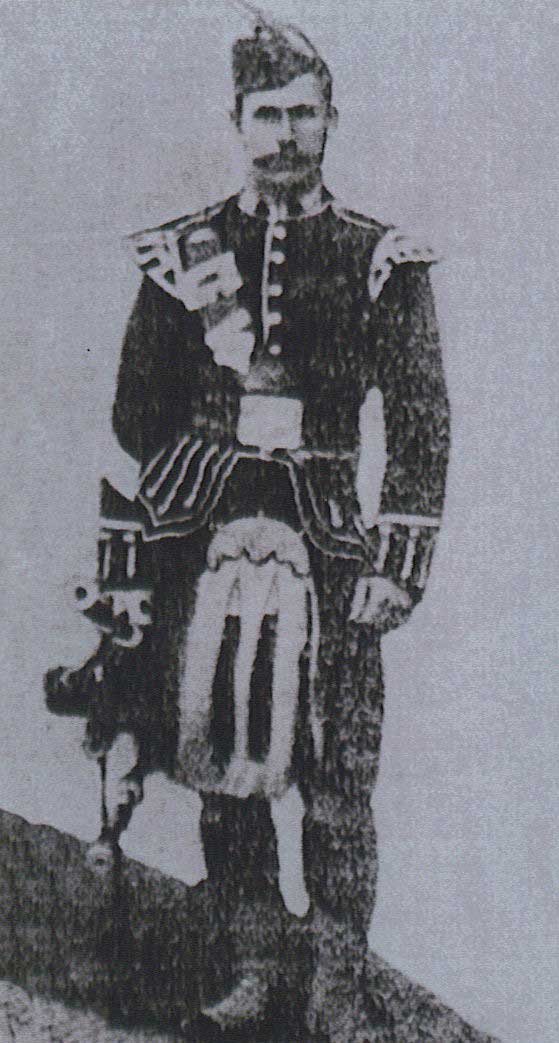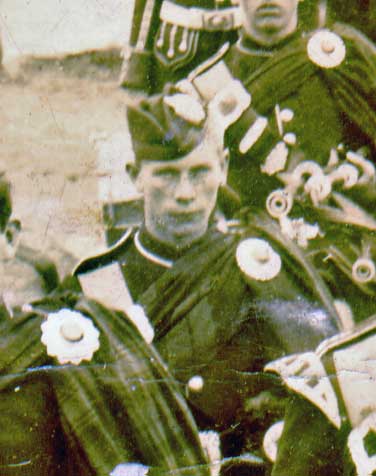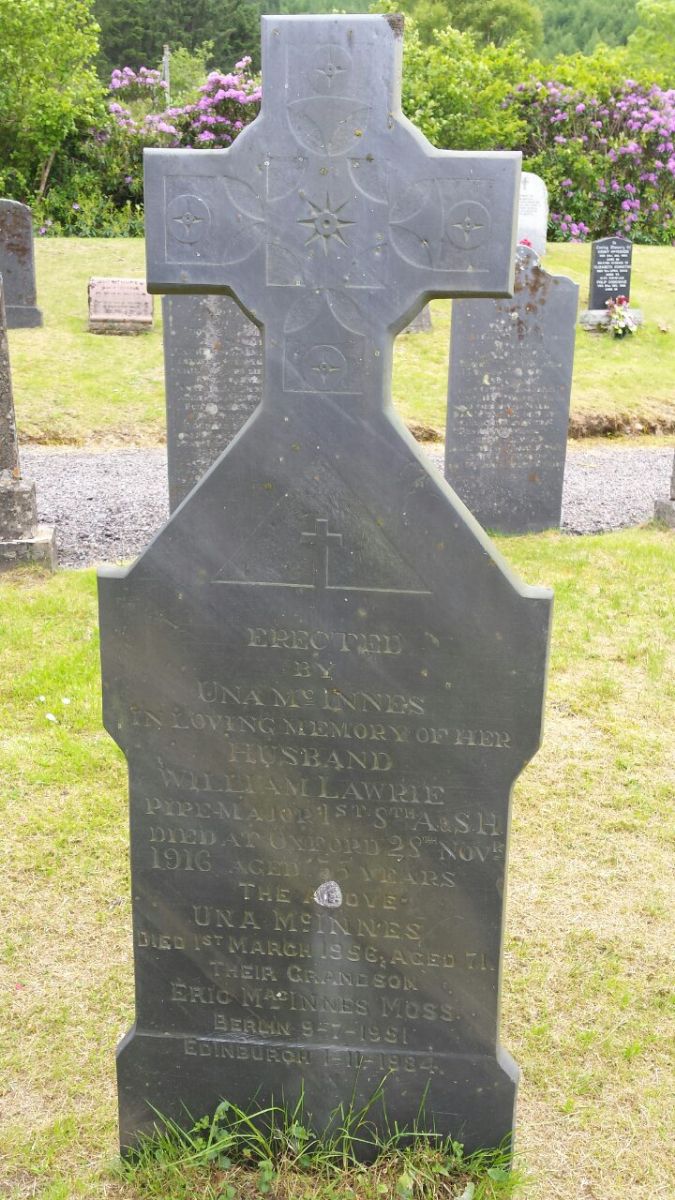William Lawrie
(1881-1916)

The death of Willie Lawrie at age 35 in 1916 remains to this day one of piping’s greatest premature losses.
A native of Ballachulish, Argyll, he was first taught by his father, but later by John MacColl, with whom he remained friends throughout his brief life. In 1910 he became only the second piper ever to win the Gold Medals at both Oban and Inverness in the same year, and he added Clasp to his Inverness Gold Medal the following year. He won the marches and the strathspeys and reels at Inverness on the same day.
But his prime legacy is as a composer. His output was small – around 20 tunes – but powerful. His distinctive gift for melody and structure gave us some of the best tunes in the art form: the marches John MacDonald of Glencoe, The Pap of Glencoe, The Braes of Breckletand Mrs. H. L. MacDonald of Dunach, the strathspeyInveraray Castle, the 4/4 march The 8th Argylls and the 9/8 retreat march The Battle of the Somme, to name a few. These tunes are stunning achievements for a man who, it could be argued, was still short of his prime.
In 1914 he succeeded George Ross as Pipe Major of the 8th Argyllshire Battalion of the Argyll and Sutherland Highlanders – the 8th Argylls – and accompanied them to France in 1915. But in 1916 he became ill while in the trenches, was invalided home, and died in a military hospital on November 28.
While the common spelling of his name is “Lawrie,” older sources go with “Laurie,” as evidenced by the obituary reprinted below from The Oban Times, December 16, 1916. The piece suitably captures the spirit of one of the most talented pipers and composers of his day:
A Famous Ballachulish Piper – Pipe-Major William Laurie
The death took place on the 28th [November 1916] in the Third Southern General Hospital, Oxford, of Pipe-Major William Laurie, Argyll and Sutherland Highlands, son of Late M. Hugh Laurie, Loanfern, Ballachulish, in his 35th year. When very young, Pipe Major Laurie joined the Ballachulish Volunteers, and to improve his playing he studied under champion piper John MacColl, being one of his cleverest pupils. He was soon promoted, and four years ago he was appointed Pipe-Major of the County Regiment. He was for some time piper to the late Earl of Dunmore and also piper to the late Colonel MacDougall of Lunga. He won first prize at all the principal Highland Gatherings in Scotland among the best pipers of the day. He won gold medals at the Argyllshire Gathering at Oban, the Northern Meeting at Inverness, with gold clasp, and at the Crieff Gathering – all championship first prize honours, and also money and other prizes at Inveraray, Portree, Fort William, Cowal, Bridge of Allen, etc. He held the record for the Inverness Gathering, having won of the same day first prizes for marches and strathspeys and reels.
Pipe-Major Laurie composed many tunes – piobaireachds, marches, strathspeys and reels. His “Lament for the late Lord Archibald Campbell” is considered to be a masterpiece of the day, and he played it before the ducal party at Inverary Castle a few years ago. [Editor’s note: this piobaireachd has since disappeared.] Some favourite pieces which he composed are “The Pap of Glencoe,” “Clach Iarick” (Henderson’s Stone, Glencoe), “John MacDonald of Glencoe,” “Captain Carswell,” “Inverary Castle,” etc.
the outbreak of the war, Pipe-Major Laurie mobilized with his regiment, and in Bedford, where they were training until May, 1915, was one of the first to volunteer for active service. He bore the brunt of the fighting and shared the privations of the campaign with his comrades until stricken down with illness several months ago.

Many throughout the country and across the seas will learn with regret the passing away of this well known champion of the national instrument. The military authorities and the hospital staff showed the greatest kindness to Mrs. Laurie while at Oxford, and everything that medical skill could do was done to save her husband’s life.
The remains arrived on Thursday evening 30th [November 1916] at his home at Loanfern, and the funeral took place next day to St. John’s Churchyard and was largely attended. The service was conducted by Rev. D. M’Donald, St. John’s, and Rev. A.S. M’Innes, Glencoe. There was an impressive service in St. John’s Church, the singing of the choir being very touching. As the remains passed out the church, the “Dead March” in “Saul” was played by the organist.

Deceased leaves a widow and three children to mourn his loss, to whom the sympathy of the community has been extended.
JM, October 2006
-with notes from Dr. William Donaldson, Aberdeen, and sources cited above.

1 Comment
I am amazed he was amazing